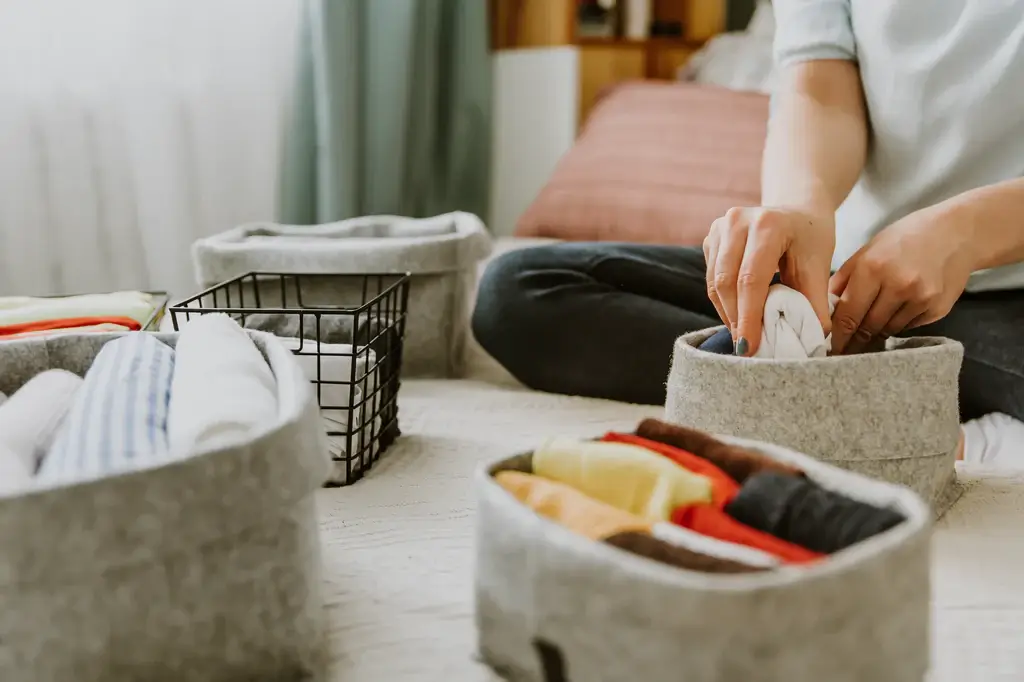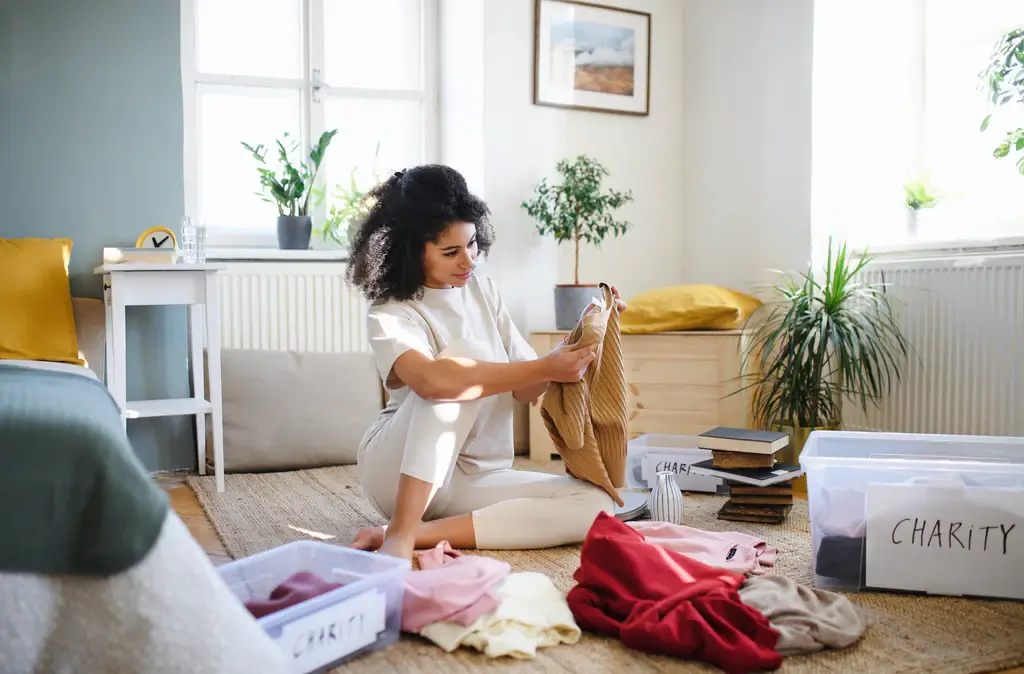Originally posted on Vital Proteins blog by Kristen Bugden
Now that spring is around the corner, it’s the perfect time to think about giving your living space a refresh by ditching the clutter and getting organized. Decluttering may not only make you feel calmer (and help you discover some long lost treasure), but having a tidy space has been linked to a boost in productivity, which is especially important if you’re working from home for the long-term. Keep reading for some sage advice from professional organizers on decluttering and you’ll have your home in tip-top shape in no time.
WHAT SHOULD I DECLUTTER FIRST?
The best way to tackle decluttering is to do it room by room in order to focus your attention on one space or zone at a time. Jamie Hord, founder of Horderly, recommends starting with high-traffic areas like the kitchen or bedrooms first and separating items that need to get decluttered into piles. “Once your items are sorted, work pile by pile to determine what to keep, toss or donate — when you know which items you’re keeping and need to store, then you can strategize in terms of where to put them and what products, if any, might be needed to maximize your space,” she says.
Breaking up decluttering tasks and starting with bite-size wins is the way to go, Ryen Toft, professional organizer and founder of Simply Luxe tells Lively.
“Nothing is worse than feeling overwhelmed and uninspired to continue—start with a drawer, and once you’ve tackled that job, move to a cupboard and keep growing momentum.” She also suggests enlisting the help of a friend can make it more fun.

HOW DO YOU KNOW WHAT YOU SHOULD KEEP OR TOSS?
In terms of what you should keep or toss, Nancy Collins, professional organizer and founder of Simplified Spaces by Nancy in Southern California, tells Livelythere’s no hard and fast rule, noting that obviously items that are damaged or worn-out need to go.
“Also, sentimentality is fine to a point, but be brave—holding onto a pencil that your child gave you in third grade doesn’t need to be kept,” Collins says.
There’s a huge misconception out there that organizers are going to come in and get rid of everything you own or push you to do so, but that’s not the case at all — the goal is to help guide you into keeping what you “love, use and need,” Toft says.
“Most of the time we have 10 items at a minimum that we can easily part with and sticking to the one item in, one item out rule is a good one to keep in mind,” Toft shares.
WHAT ARE A FEW HANDY HOME ORGANIZATION PRODUCTS?
With tons of organizational products out there to choose from, we turned to our experts for their top picks. “At Horderly, we love using clear bins in kitchens, pantries, bathrooms and linen closets—these versatile bins are great because they allow you to see what you’re reaching for and help you take easy inventory when it’s time to restock!” shares Hord. Drawer dividers and organizers are also great products for any drawer in your home. “Use expandable drawer dividers in your dresser, bamboo dividers in your kitchen, or even drawer organizers in shallow drawers to contain tools, accessories, baby items, makeup and more,” Hord says, highlighting that these types of products can make any space feel more functional.
If you’re tackling the garage or basement, Bridget Stralko, Detroit-based professional organizer recommends adjustable metal shelving to create extra storage. “Adjustable is key here so that you’re able to fit bins of any size onto the shelf—66 quart clear plastic bins with lids are my personal go-tos for organizing things by groups onto said shelves,” she says.
Finally, Toft is a big fan of anything by iDesign for their sustainable approach and thoughtful home organization solutions. “I’m obsessed with their new Paulownia wood collection—eco-friendly launches such as this one are huge in the organizing world because it’s essentially taking what we love to do and helping us to be environmental stewards in the same moment,” she says.
HOW DO I ORGANIZE MY HOME ON A BUDGET?
While there are indeed plenty of products out there that can assist with organizing your space, you’d be surprised in terms of what you can already find in your home to help, for example, Hord notes that before purchasing items like bins or baskets, see if you have any around the house that you can repurpose in a different space.
“There’s a misconception out there that you have to spend money to get organized,” adds Stralko. “Wrap a cardboard box with pretty wrapping paper, use an old shoe box or take the label off a glass spaghetti jar and repurpose it to hold the things you want to keep—the dollar store also has handy options for bins and containers to hold your things.”
If you’re on a budget, always make sure you do a complete decluttering of your space before making any purchases, Jen Van Buskirk, founder of The Neat Boutique tells Lively.
“A lot of the time, simply reducing 5 to 10 percent of the items in the particular space greatly curtails what you’ll need to invest in organizing solutions. You don’t want to spend money to store what you don’t need!”

HOW DO YOU DECLUTTER WHEN OVERWHELMED?
Let’s face it, organizing and decluttering isn’t necessarily the most fun activity, so what can you do if you’re just plain over it?
First and foremost taking a break, Stralko suggests. “Remember, it probably took you weeks, months or even years to make your piles. They are not going to get cleared overnight,” she shares, adding that the best time to organize is first thing in the morning after you’ve taken care of yourself.
“Eat a good meal, drink some water to stay hydrated and put a time limit on your project so it doesn’t feel unmanageable.” Lastly, she points out that if you’re really struggling to finish the job yourself, consider asking family members, friends or even hiring a professional organizer to help you sort through it all.
